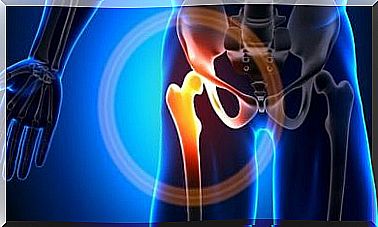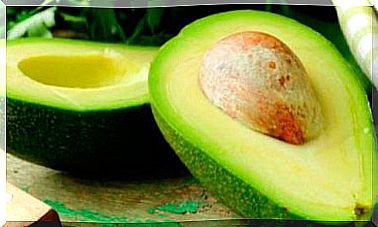Nutritional Information And Benefits Of Peas
Thanks to the fiber they contain, peas reduce the risk of constipating. It also increases the feeling of fullness.
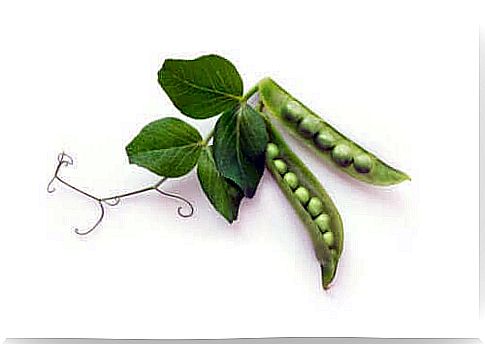
Peas are a healthy food and recommended in almost any diet. Thanks to their nutrients, they present benefits in the medium term, provided they are part of a balanced diet. It is a food of the legume family with which it shares characteristics.
According to expert opinion, it is advisable to consume legumes at least once a week. Indeed, a higher consumption of this type of food is associated with a lower risk of developing certain complex pathologies such as cardiovascular diseases.
Nutritional value of peas
For every 100 grams of peas, we get 31 calories. It is therefore not a very high energy food. As for macronutrients, we must especially mention the 7 grams of carbohydrates as well as the 1.8 grams of protein for the same amount of peas. They are therefore practically devoid of lipids.
It is also a legume that stands out for its water and fiber content. This then gives it many properties for health.
Regarding micronutrients, the contents of vitamin A (690 milligrams) and vitamin B9 (33 milligrams) stand out from the others. For 100 grams of peas, we also get 6 milligrams of sodium as well as a significant amount of 12.2 milligrams of vitamin C.
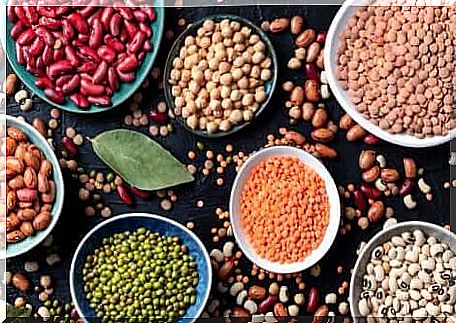
Benefits of eating peas
Here are the benefits of eating peas on a regular basis, as well as what the science says about it.
1. Less intestinal disturbances
Consuming fiber is linked to a lower risk of constipation. It improves intestinal transit and guarantees regular, consistent and effortless bowel movements.
Moreover, this substance has also been shown to be essential in the prevention of colon cancer. By increasing the size of the fecal bowl and not being digestible, fiber results in the waste products that can stick to the intestinal walls. This then avoids causing tissue damage.
In addition, frequent ingestion of fiber generates an increase in the feeling of fullness and therefore reduces the risk of unhealthy snacking between meals. This makes it easier to plan a weight loss diet.
2. Control of lipid profile
It is certain that the influence of diet on the lipid profile is limited. However, certain foods can slightly lower plasma cholesterol or triglyceride levels. This is associated with a lower cardiovascular risk.
What we do know is that fiber partially blocks the absorption of certain nutrients such as fat and dietary cholesterol. This is what confirms this study published in Postepy Hig Med Dosw. They thus stimulate the synthesis of these elements endogenously, this regulation being very effective.
Fiber also has a similar effect in modulating the absorption of carbohydrates because it delays their entry into the bloodstream. This can be an effective strategy for controlling diabetes.
3. Improved immune system
As we have pointed out, peas have a high concentration of vitamin C. This nutrient has the ability to improve the functioning of the immune system according to current scientific evidence.
Indeed, ingesting one gram of vitamin C per day helps prevent the development of certain infectious diseases such as the common cold or the flu. In addition, it reduces the duration of symptoms once they appear.
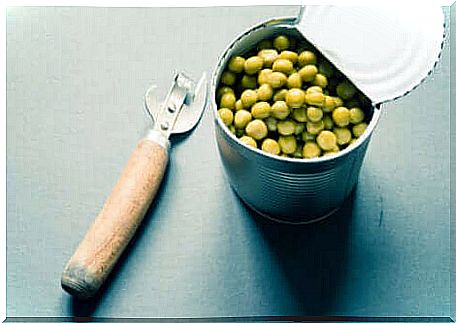
How to cook peas?
Cooking peas is quite simple. They require a cooking process before consuming them. Remember, the slower the cooking, the better the end result.
The ideal is to put them in a saucepan with some vegetables, then add water and cook until boiling. The cooking should last almost an hour so that the vegetables are soft and homogeneous.
However, be aware that most varieties of legumes require prior soaking of at least 24 hours.
Of course, it is also possible to find canned peas, already cooked. This increases the possibilities of recipes and makes it possible to prepare salads, pea creams and even woks with other foods.
Let your imagination run wild until you find the perfect recipe to cook this wonderful legume.
Peas: a recommended food
To conclude, we can say that peas are strongly recommended for health as part of a healthy and balanced diet. They actually contain essential nutrients for the body and have significant concentrations of fiber.
They also stand out for their versatility in the kitchen. This will then allow you to experiment and prepare different recipes with the peas as protagonists. Dishes in sauce are the most classic option, but salads and woks are sure to surprise you.
Finally, know that in the form of preserves, peas preserve their nutritional properties intact. However, it is recommended to consume them fresh.


